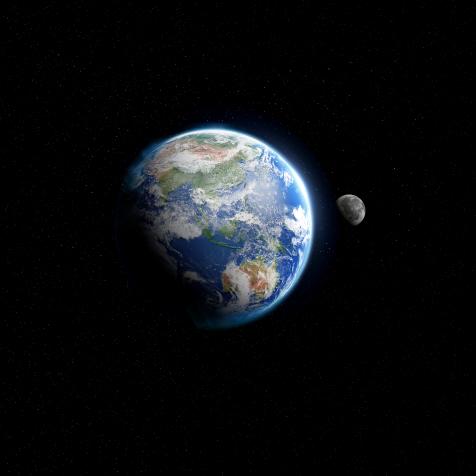
Oliver Helbig
Repurposing PPE: Recycling Plastic Waste into Clean, Useful Materials
One of the obvious impacts from tackling the coronavirus epidemic is the mountain of plastic waste created by discarded personal protective equipment (PPE).
Global use of disposable face masks and gloves was estimated to be more than 100 billion pieces each month, so recycling that waste to protect the environment is now a priority.
Hospitals in Wuhan burned through 240 tons of single-use PPE every day at the height of the pandemic. So a novel solution to recycle masks and other equipment into green fuel could stop vast amounts of waste going to incinerators, landfills, and into the ocean.
A team from Swansea University in Wales has done just that, with a process that breaks down the plastic into hydrogen using only sunlight. Photoreforming uses nanostructured semiconductors and light to degrade the plastic and any virus attached to it. The byproducts are hydrogen and chemical feedstocks, which can be reused by the chemical industry.
Project lead Dr. Moritz Kuehnel describes the concept as a kind of simple washing machine that transforms PPE into useful materials and eliminates waste. “Applying our technology to reprocess just one percent of this waste would save millions and mitigate pollution at the same time,” he said.
No greenhouse gases are produced and the process is cheap and easy enough to be used by rich and poor countries alike. Research is still at an early stage, but Kuehnel sees it as a way to tackle disposable face masks, littering beaches, and the mountains of inevitable hospital waste.
Yet another way to transform plastic PPE is to melt it down for recycling. Machines developed by TCG Solutions heat up used sterilization tray wraps, face masks and drapes and melt them into a solid block of plastic. Plastic blocks are then repurposed into collection bins that go back into hospitals, or the blocks are sold back to plastic product makers for traditional and 3D-print manufacture.

GUILLAUME SOUVANT
A worker at the start-up Plaxtil company handles protective masks as they are made ready for recycling into plastic to make visors, door openers, mask fasteners, on August 25, 2020 in Chatellerault, western France. - The use of disposable masks has become an environmental issue with people around the world using and throwing away millions of masks worn to curb the spread of the novel coronavirus, COVID-19.
This method has other environmental advantages because blocks are easier to transport and require fewer trips when taking materials for recycling. Circular economy principles mean the planet's resources are reused rather than sent to landfill. Plastic reduction also meets the World Trade Organization's goals for sustainable development.
Nine billion tons of plastic has been produced since 1950 and illnesses–including cancers, bowel and inflammatory diseases like arthritis–caused by plastic and its byproducts can be avoided by better recycling. Projects include zero-waste recycling boxes that can be placed at grocery stores and public parks to encourage people to dispose of their protective equipment responsibly.
Researchers in Melbourne, Australia are also using waste PPE to make better road-making materials. Shredded face masks added to processed building rubble create stiffer, stronger aggregates that are used as the base layer for roads. Preliminary work on making better concrete with shredded masks is showing promise, too.
Meanwhile, in India, an innovative project is turning scraps of waste PPE into cheap, lightweight mattresses. Bed rolls are made from manufactured off-cuts that would otherwise be banned. Cleaner, softer and more dust-free than fabric scraps, the project, named Shayya (Sanskrit for 'bed'), is providing the mattresses to COVID-19 care centers.
They are cheaper and easier to disinfect than regular mattresses, and address the reality that India is the world's second-biggest PPE manufacturer after China. But to combat the projection that 75% of all COVID-related protective gear will end up in landfills or the sea, more and more creative thinking around repurposing pandemic waste will be needed globally.


















